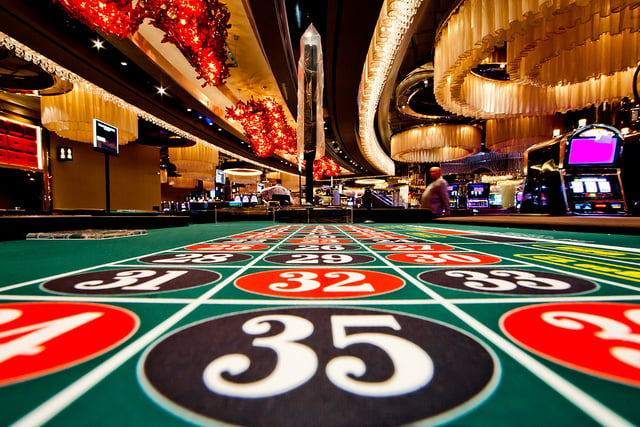
Casino gaming has long been a subject of fascination and debate, attracting millions of players globally. With a mix of luck, skill, and the thrill of uncertainty, casino games offer an exhilarating escape from everyday life. However, as entertainment becomes ever more accessible, it invites a more thorough examination of the morality surrounding these games.
At the heart of the discussion lies the issue of whether casinos promote responsible gaming or take advantage of at-risk individuals. The appeal of potential winnings versus the reality of losses can create a challenging situation, and understanding this balance is crucial for both players and operators. As we delve into the morals of casino gaming, we will explore the duties of casinos, the effects on society, and the measures that can be taken to foster a better gaming environment.
The Impact of Casino Gaming on Society
Gambling in casinos has a significant influence on society, affecting not only the economy but also interpersonal dynamics and community structures. The revenue generated from casinos can lead to job creation and boost regional economies, as they provide multiple employment opportunities in different sectors including hospitality, leisure activities, and retail. However, while the financial benefits can be significant, communities often struggle with the possible negative impacts that arise from higher gambling activity.
Moreover, the presence of casinos can lead to an increase in gambling addiction, presenting serious challenges for individuals and families. The excitement of casino games can quickly transform into a compulsive habit, affecting connections with others and leading to financial instability. Many players may find it difficult with the loss of control over their gambling behaviors, resulting in a need for community support services and help to address this increasing issue. The social cost of addiction can ripple through kinships and neighborhoods, creating an urgent need for sensible gambling approaches.
In addition to the economic and social ramifications, casino gaming often reflects cultural attitudes towards uncertainty and entertainment. It can encourage a sense of joy and leisure, attracting tourists and boosting local travel. However, this allure may also conceal the broader implications of gambling as a form of entertainment, provoking ethical questions about its promotion and accessibility. As communities weigh the advantages and drawbacks of casino gaming, the need for responsible practices and oversight becomes increasingly critical in ensuring that the beneficial elements are enhanced while minimizing the potential harms.
Moral Issues in Gambling Activities
The morality of casino operations often center around the potential for addiction and its consequences on individuals and families. Gambling can lead to significant financial distress, impacting not only the gamblers but also their loved ones. As people become entrapped in the allure of winning, many lose track of their financial limits, which can result in catastrophic results such as bankruptcy. This raises moral questions about the duty of gambling establishments in promoting responsible gaming practices and providing support for those who may be dealing with betting addiction.
Another major issue is the advertising of betting to vulnerable groups. Gambling establishments often aim at low-income people or communities with the promise of quick gains, which can perpetuate cycles of financial struggle and despair. In this context, the morality of advertising strategies used by gambling establishments come under scrutiny, as they may take advantage of the need of individuals seeking an way out from financial hardships. This exploitation raises ethical questions about the honesty of the gambling industry and its responsibility to protect its most at-risk patrons.
Additionally, the effect of casino operations on society as a whole cannot be ignored. non GamStop casinos While some argue that gambling establishments create jobs and boost local economies, others point to the community costs associated with dysfunctional gambling, increased criminal rates, and a burden on public resources. Balancing economic benefits with the risk for community issues presents a complex moral dilemma for lawmakers and gambling operators alike. The challenge lies in discovering a responsible approach that prioritizes the welfare of individuals and communities while still allowing for the enjoyment of casino activities.
Regulatory System and Duties
The regulatory system pertaining to gambling operations is created to ensure justice, trustworthiness, and participant protection. Different government bodies and casino commissions establish and apply regulations that dictate how gambling operations function, the standards for activity development, and the processes for handling rewards. These regulations change by region but usually involve permit requirements for businesses and strict measures to stop deception and fraud.
In addition to oversight bodies, casino establishments bear considerable duty in upholding principled standards within their facilities. They must implement ethical gaming practices that promote participant security and awareness, including presenting self-exclusion options and sharing information about the hazards associated with betting. Establishments are also responsible for educating workers to spot signs of problem gambling and be aware of the appropriate measures to support visitors in need.
Furthermore, transparency in gaming operations is essential for earning and maintaining public trust. Gaming establishments should present clear data about the probabilities of activities, advertising deals, and any connected dangers. By creating an culture of integrity and trust, gambling establishments can help mitigate the likelihood negative impact of gambling while boosting the complete gaming experience for all participants.
